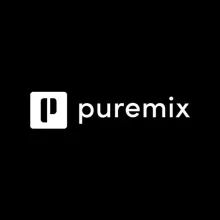In 1996, Steinberg launched a technology that made it possible to integrate effects processors and virtual instruments into a digital audio environment. The VST era was born.
In addition to seeing how this German developer’s own technology has evolved, we have also seen similar proposals from other companies. Apple AU and AUv3; Avid/Digidesign AAX, RTAS and TDM; and MOTU’s MORE. These may be some of the most visible examples, but there are others that are not common among mainstream developers and have not changed.
Now, CLAP, a new add-on introduced by two popular music development companies (Bitwig and u-he), is an open source offering that promises some improvements over most options.
Bitwig Studio and u-he CLAPCLAP stands for “CLever Audio Plug-in API” and, according to its creators, is a new open standard for audio plug-ins. That is, a new expansion format that seems to offer significant improvements over current formats.
The main advantages that Bitwig Studio and u-li talk about are definitely better performance and greater stability. Two things that are not exactly trivial for audio professionals. Better performance, where multithreading especially stands out thanks to the cooperation between the plug-in and the host, and the set of threads that allow better use of the capabilities of modern processors.
Preliminary tests seem to show significant performance improvements over current solutions, but CLAP also seems to offer improvements in the way plugins are organized and the plugins they require.
The CLAP host can read metadata from modules and help organize them better, as well as collect audio or wave files and merge them into the project, preventing them from being lost.
Finally, CLAP also extends modulation and automation capabilities to the MIDI 2.0 specification, allowing non-destructive time compensation of automation and modulation processes based on parameters and notes, i.e. polyphonic.
The paper is definitely very promising, and the fact that it is open source makes it more attractive in many ways. It now remains to be seen how the industry will accept this new format, which is currently available through a limited number of tools (e.g., the upcoming beta version of Bitwig and some u-he add-ons).
A statement from its developers also says that many companies are currently investigating the inclusion of CLAP in their development processes, and not exactly unknown: Avid, Presonus, Arturia, FabFilter, Valhalla or VCV are just a few examples.



